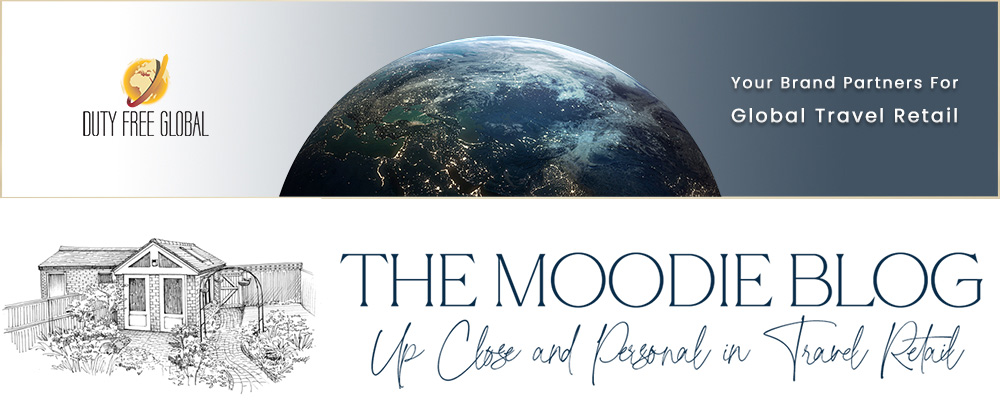Latest posts by Martin Moodie (see all)
“What is an automatic garage door?”
“It is a garage door that opens and closes itself on your behalf. What do you think of that?”
“I think if I were a garage door, I should rather miss the old days.” – From A Gentleman in Moscow, Amor Towles
 “As a traveller, there is nothing quite as exhilarating as stepping foot onto foreign soil, and immersing yourself in a culture that is vastly different from your own,” writes our special correspondent ChatGPT.
“As a traveller, there is nothing quite as exhilarating as stepping foot onto foreign soil, and immersing yourself in a culture that is vastly different from your own,” writes our special correspondent ChatGPT.
“As I traverse the globe, I find myself constantly in awe of the diversity of humanity and the beauty of our planet. From the vibrant markets of Marrakech to the serene beaches of Bali, there is always something new and exciting to experience.”
STOP RIGHT THERE! If you hadn’t heard of – or from – ChatGPT, you have now. But I assure you it will be the last time that the world’s hottest artificial intelligence chatbot (developed by OpenAI and launched in November 2022) makes an appearance in this Blog.
The programme’s 73 words above are just part of a 200-word submission from ChatGPT after my colleague Matt Willey asked it to ‘write 200 words about travelling in the style of Martin Moodie for The Moodie Blog’.
You will forgive me, I hope, for eliminating the remaining 127 words, full as they are of vacuous tosh (the latter one of my favourite words and highly unlikely to be deployed by ChatGPT). And if that’s my style of writing I herewith resign from the journalistic profession and will instead embark on a career in low-rent travel brochure copywriting.
However, while I won’t be adding ChatGPT to my team of editorial contributors anytime soon, this isn’t to say that the platform doesn’t have a future in travel retail. For better or worse, it does. Take a look at this excellent article by James Brown of integrated retail marketing, design and communications agency Purple, as he tests out ChatGPT by OpenAI’s potential for usage by Trinity stakeholders – brands, retailers, airports.

Read (and think about) this from James’ article.
ChatGPT has amassed 100 million users in just three months. Instagram took a year to reach 10 million sign-ups.
Its rise in the workplace, classroom and at home has catapulted ChatGPT on to the cover of February’s TIME Magazine. And it is set to scale even further, with integration into Microsoft’s Bing search engine and the release of the next generation GPT-4 scheduled for early 2023.
You might be wondering what generative AI is? It’s best to think about it as a broad label to describe any type of artificial intelligence that can be used to create new text, images or video (mainly) from human prompts. Key players include ChatGPT (text), Midjourney (image) and Runway (video). These platforms are trained on huge amounts of data from the Internet and use deep learning algorithms to improve over time.
Just a few months ago, you would have been forgiven for assuming AI might only be used to automate administrative or financial processes. But a recent survey by Fishbowl found that nearly 30% of professionals are using ChatGPT to assist with work-related tasks – many of them in creative roles.
Wow. Editors (and readers) beware. Is that article you are reading contributed by a human or a Chatbot? The question might sound flippant but it is deadly serious. James’ article shows just how valuable ChatGPT can be across a range of disciplines. But – and here’s the point – as a complement and not a replacement for human thought and creativity.
As a publisher, one might think I should be more worried than most about the advance of AI-generated content. But frankly I would be far more concerned if I was a teacher assessing students’ contributions. All the plagiarism checkers in the world will be struggling to cope with this technological advance.
At the risk of sounding like an old fogey (which may be precisely how ChatGPT might describe me if asked to sum up The Moodie Davitt Report Founder in three words), I don’t believe that ChatGPT will fundamentally transform the world of journalism – at least at the more ethical end of the spectrum. Alas, there are plenty at the other end.
I began my journalistic career in the 1980s – writing wine and film reviews – punching out copy on an old Olivetti long since replaced by the writer’s equivalent of an automatic garage door.

 As I noted in an earlier Blog from June 2021, those were the days when you created your articles paragraph by paragraph, page by page, and used Tipp-Ex (think eyeliner for writers) if god forbid you made a mistake.
As I noted in an earlier Blog from June 2021, those were the days when you created your articles paragraph by paragraph, page by page, and used Tipp-Ex (think eyeliner for writers) if god forbid you made a mistake.
You had to be good and tight in your writing before you sent it off to some unforgiving editor. In that Blog, I asked, “Is contemporary writing with all its benefits of spell check and grammar check and the ability to delete and move words around at will that much better? I’m not so sure. I learnt much about the value and economy of words on that lovely Olivetti.”
Ah, even saying the word ‘Olivetti’ out loud almost makes me purr like an old cat. I learned my craft on it. I didn’t need ChatGPT then just as I have never felt the need for an automatic garage door (especially in Discovery Bay, Hong Kong, where cars are banned).
I reckon this Blog of almost 1,000 words took me about two hours to write. ChatGPT could have done it in ten seconds. But then we’d be still stranded on the semantically sad albeit ‘serene’ beaches of Bali.
Similarly, I’m sure ChatGPT could come up quickly with a circa 138,000-word novel about an aristocrat sentenced to life-long house arrest in Russia for being deemed an unrepentant aristocrat by a Bolshevik tribunal. But never, in this or any future incarnation of the AI technology, will it be able to capture a zillionth of Amor Towles’ elegant, poignant and utterly enchanting prose.
However, Olivettis and old fogeys either move on or they get moved on. So I will embrace the brave new AI world where relevant and ethical but, like an old garage door, rather miss the old days.

